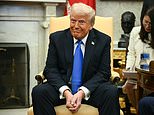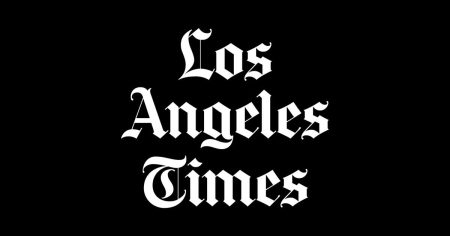Trump Revokes Security Clearances of Top Democrats, Escalating Political Feud
In a move that has sparked widespread controversy and concern, former President Donald Trump has revoked the security clearances of several high-ranking Democrats and legal figures. This dramatic escalation in Trump’s ongoing feud with his political opponents comes as he intensifies his crackdown on individuals he perceives as threats to his agenda or credibility. Among those targeted are former Secretary of State Antony Blinken, Manhattan District Attorney Alvin Bragg, and New York Attorney General Letitia James. Additionally, other prominent officials and attorneys, including former National Security Advisor Jake Sullivan, Biden’s Deputy Attorney General Lisa Monaco, and attorneys Andrew Weissmann, Mark Zaid, and Norm Eisen, have also had their security clearances revoked, according to reports from Fox News.
The revocation of security clearances is not merely symbolic; it carries significant practical consequences. Individuals who lose their clearances are barred from accessing classified information, which could severely hinder their ability to perform their duties effectively. Furthermore, they are prohibited from entering federal buildings, including courthouses, prisons, and law enforcement facilities. This restriction could hamper their work in critical areas such as law enforcement, national security, and legal proceedings. For instance, Manhattan District Attorney Alvin Bragg, who is currently investigating Trump, may find his ability to access sensitive information and collaborate with federal agencies significantly impaired.
This latest action by Trump follows a pattern of targeting his political adversaries, particularly those involved in investigations or legal actions against him. Just a day prior, Trump revoked the security clearance of President Joe Biden, cutting off his access to daily presidential briefs. In a statement on his social media platform, Truth Social, Trump justified the move by claiming that there was "no need" for Biden to continue receiving classified information. This decision has raised eyebrows, as it is unusual for a former president to retain access to such sensitive material, though it is not unheard of. However, the broader context of Trump’s actions suggests a broader effort to undermine his political opponents and consolidate power.
The officials targeted in this latest purge are not merely political figures; they are also key players in ongoing legal and investigative processes that could have significant implications for Trump’s future. For example, Alvin Bragg is leading a high-profile investigation into Trump’s business dealings, while Letitia James has been a vocal critic of the former president and has pursued legal action against him. By revoking their security clearances, Trump may be attempting to disrupt their work and create obstacles for those who could pose a threat to his political or legal standing.
The move has been met with sharp criticism from Democrats and legal experts, who argue that Trump’s actions are motivated by a desire for political retribution rather than any legitimate national security concerns. Many have pointed out that the revocation of security clearances is typically a measure reserved for addressing genuine risks to national security, such as treasonous behavior or espionage. To use this tool to target political opponents raises serious questions about the politicization of national security and the potential for abuse of power.
As the political landscape continues to polarize, Trump’s actions are likely to further inflame tensions and deepen the divide between his supporters and detractors. Critics warn that such measures could set a dangerous precedent, normalizing the use of security clearances as a political weapon. At the same time, supporters of Trump may view the move as a necessary step to protect his interests and assert his authority in the face of what he often portrays as a "deep state" bent on undermining his agenda. Whatever the intent behind these actions, their impact on the functioning of the government, the rule of law, and the integrity of the national security apparatus is likely to be profound and far-reaching.
In conclusion, Trump’s decision to revoke the security clearances of top Democrats and legal figures represents a significant escalation in his ongoing feud with his political opponents. The practical and symbolic implications of this move are substantial, and they raise important questions about the balance of power, the role of national security in political disputes, and the potential for abuse of authority. As the situation continues to unfold, it will be crucial to monitor how these actions are received by the public, the legal community, and the broader political establishment, as well as their potential impact on the integrity of democratic institutions.









